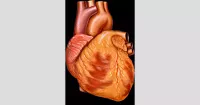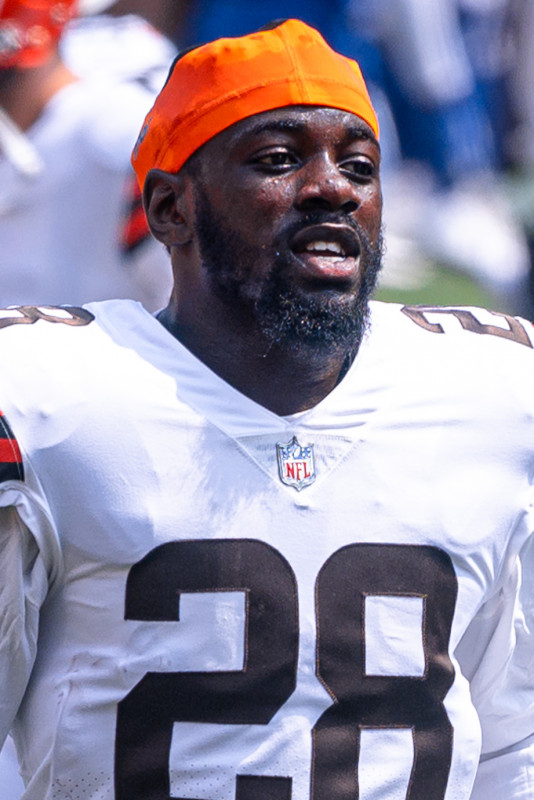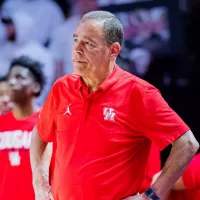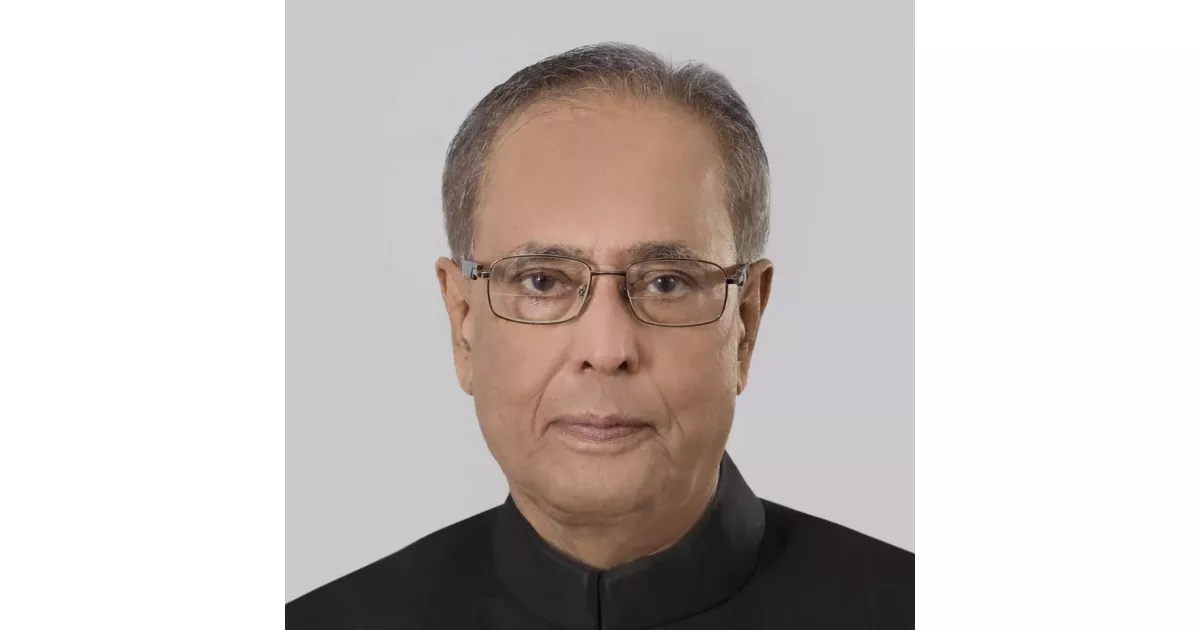Pranab Kumar Mukherjee was a prominent Indian politician who served as the 13th President of India from 2012 to 2017. He held this position for five years and was the first individual from West Bengal to achieve this honor. His political career spanned five decades, primarily with the Indian National Congress party. Mukherjee held various ministerial positions within the Indian government, notably as Finance Minister from 2009 to 2012, before becoming President. In 2019, he received the Bharat Ratna, India's highest civilian award, from his presidential successor, Ram Nath Kovind.
1928: Birth of Annapurna Banarjee
Pranab Mukherjee's sister, Annapurna Banarjee, was born in 1928.
1931: Birth of Piyush Mukherjee
Pranab Mukherjee's brother, Piyush Mukherjee, was born in 1931.
December 1935: Birth of Pranab Mukherjee
Pranab Mukherjee was born in December 1935 in Mirati, Bengal Presidency (now West Bengal), British India.
1952: Father's Political Career
Mukherjee's father, Kamada Kinkar Mukherjee, served in the West Bengal Legislative Council from 1952 to 1964.
July 1957: Marriage to Suvra Mukherjee
Pranab Mukherjee married Suvra Mukherjee on July 13, 1957.
1963: Lecturer of Political Science
Mukherjee became a lecturer of Political Science at Vidyanagar College in 1963.
1964: End of Father's term in Council
Pranab Mukherjee's father ended his time at the West Bengal Legislative Council in 1964.
1967: Founding Member of Bangla Congress
Mukherjee was a founding member of the Bangla Congress in 1967.
July 1969: Member of Rajya Sabha
Mukherjee became a member of the Rajya Sabha in July 1969.
1969: Entry into Politics
Pranab Mukherjee entered politics in 1969, elected to the Rajya Sabha with Indira Gandhi's support.
1972: Joined Indian National Congress
Mukherjee joined the Indian National Congress in 1972.
1973: Appointment as Minister
Mukherjee became a minister in Indira Gandhi's cabinet in 1973.
1973: Union Deputy Minister of Industrial Development
Mukherjee was appointed Union Deputy Minister of Industrial Development in 1973.
1973: Code of Criminal Procedure Amendment
The Criminal Law (Amendment) Ordinance, 2013 amended the Code of Criminal Procedure, 1973, among other laws.
1975: Internal Emergency
Mukherjee was active in the Indian cabinet during the Internal Emergency (1975–77).
1975: Re-elected to Rajya Sabha
Mukherjee was re-elected to the Rajya Sabha in 1975.
1977: Congress Defeat
Congress was defeated in the 1977 general elections.
January 1978: Entry into Congress Working Committee
In January 1978, Pranab Mukherjee joined the Congress Working Committee and the Central Parliamentary Board of the AICC. He briefly served as treasurer for both the AICC and the Congress party that year.
1979: Deputy Leader of INC in Rajya Sabha
Mukherjee became the Deputy Leader of the INC in the Rajya Sabha in 1979.
1979: Shah Commission Indictment and Exoneration
The Shah Commission indicted Mukherjee, but was later itself indicted in 1979; Mukherjee was exonerated.
1980: Leader of the House
Mukherjee became Leader of the House in 1980.
1980: Leader of the House in Rajya Sabha
Mukherjee became the Leader of the House in the Rajya Sabha in 1980.
1980: First Stint as Commerce Minister
Pranab Mukherjee's first term as Commerce Minister began in 1980 under the Indira Gandhi government.
1981: Re-elected to Rajya Sabha
Mukherjee was re-elected to the Rajya Sabha in 1981.
1982: First Term as Finance Minister
In 1982, Pranab Mukherjee began his first term as Finance Minister under Indira Gandhi, presenting his first budget and overseeing the final repayment of India's first IMF loan. He also appointed Manmohan Singh as Governor of the Reserve Bank, but faced accusations of patronage in industrial disputes.
1982: Finance Minister
Mukherjee became Finance Minister in 1982, a position he held until 1984.
1982: End of First Stint as Commerce Minister
Pranab Mukherjee's first stint as Commerce Minister concluded in 1982.
1984: Removal as Finance Minister
Despite being rated the best Finance Minister in the world by Euromoney magazine in 1984, Pranab Mukherjee was removed from his position by Rajiv Gandhi.
1984: Sidelined from Congress
Mukherjee was sidelined in Congress during Rajiv Gandhi's premiership following Indira Gandhi's assassination in 1984.
1984: Second Stint as Commerce Minister
Pranab Mukherjee served a second term as Commerce Minister in 1984.
1984: Chairman of Campaign Committee
Pranab Mukherjee served as chairman of the AICC's Campaign Committee for the 1984 parliamentary elections.
1985: President of West Bengal Congress
Mukherjee held the post of president of West Bengal Congress in 1985.
1985: End of term as Leader of the House
Mukherjee's term as the Leader of the House in Rajya Sabha ended in 1985.
1986: Founded Rashtriya Samajwadi Congress
Mukherjee founded the Rashtriya Samajwadi Congress (RSC) in 1986.
1987: Poor Performance of RSC in West Bengal Polls
The RSC performed poorly in the 1987 West Bengal Assembly polls.
1989: Merger of Rashtriya Samajwadi Congress with Congress
Mukherjee's party, Rashtriya Samajwadi Congress, merged with Congress in 1989.
1991: Deputy Chairman of the Planning Commission
From 1991 to 1996, Pranab Mukherjee served as Deputy Chairman of the Planning Commission during Narasimha Rao's premiership, a period which saw significant economic reforms under Finance Minister Manmohan Singh.
1991: High Fiscal Deficits
In 1991, there were concerns about rising fiscal deficits, the highest since that year, during Mukherjee's tenure.
1991: Planning Commission Head
Mukherjee was appointed head of the Planning Commission in 1991.
1991: Political Career Revival
Mukherjee's political career was revived in 1991 after Rajiv Gandhi's assassination.
1991: Chairman of Campaign Committee
Pranab Mukherjee served as chairman of the AICC's Campaign Committee for the 1991 parliamentary elections.
1993: Re-elected to Rajya Sabha
Mukherjee was re-elected to the Rajya Sabha in 1993.
1995: External Affairs Minister
Mukherjee became the External Affairs Minister in 1995, serving until 1996.
1995: Foreign Minister
Mukherjee served as Foreign Minister from 1995 to 1996.
1996: End of Term as Deputy Chairman
Pranab Mukherjee completed his term as Deputy Chairman of the Planning Commission in 1996.
1996: End of Term as External Affairs Minister
Pranab Mukherjee left his position as External Affairs Minister in 1996.
1996: Chairman of Campaign Committee
Pranab Mukherjee served as chairman of the AICC's Campaign Committee for the 1996 parliamentary elections.
1997: Outstanding Parliamentarian Award
Pranab Mukherjee was honored as Outstanding Parliamentarian by the Indian Parliamentary Group in 1997.
1998: General Secretary of AICC and Campaign Committee Chairman
In 1998, Pranab Mukherjee was appointed General Secretary of the AICC and also chaired the Campaign Committee for the parliamentary elections.
1998: AICC General Secretary
Mukherjee became the General Secretary of the AICC in 1998-99.
1998: Sonia Gandhi's Ascent to Congress Presidency
Mukherjee played a key role in Sonia Gandhi becoming Congress President in 1998.
June 1999: Chairman of Central Election Coordination Committee
From June 1999 to 2012, Pranab Mukherjee served as chairman of the AICC's Central Election Coordination Committee.
1999: Re-elected to Rajya Sabha
Mukherjee was re-elected to the Rajya Sabha in 1999.
2000: President of West Bengal Congress
Mukherjee became the President of West Bengal Congress in 2000.
December 2001: Appointment to Central Election Committee
Pranab Mukherjee was appointed to the Central Election Committee in December 2001.
2004: Leader of the House and Lok Sabha Win
In 2004, Pranab Mukherjee became the Leader of the House in the Lok Sabha and won a seat from Jangipur, West Bengal. He was also considered as a potential Prime Minister but Manmohan Singh was ultimately chosen.
2004: Appearance on Aap Ki Adalat
In 2004, after the elections, Mukherjee appeared on the TV show "Aap Ki Adalat" to discuss the UPA government's performance.
2004: First Lok Sabha Seat
Mukherjee won his first Lok Sabha seat in 2004.
2004: Appointment as Defence Minister
Pranab Mukherjee was appointed as India's Defence Minister in 2004 when the Congress party returned to power.
March 2005: Key Role in Patents Amendment Bill
In March 2005, Pranab Mukherjee played a crucial role in negotiating and passing the Patents Amendment Bill, balancing the interests of the Congress party and its allies.
June 2005: Indo-US Defence Framework Deal
In June 2005, as Defence Minister, Pranab Mukherjee signed the ten-year Indo-US Defence Framework deal.
2006: Defense Minister
Mukherjee served as Defense Minister from 2004-2006.
2006: End of Term as Defence Minister
Pranab Mukherjee's term as Defence Minister ended in 2006.
2007: Consideration for Presidency
In 2007, Pranab Mukherjee was briefly considered for the Indian presidency, but his name was dropped due to his indispensable contribution to the Union Cabinet.
2008: Steering Cabinet During Prime Minister's Surgery
During Prime Minister Manmohan Singh's heart bypass surgery in 2008-2009, Pranab Mukherjee took on additional responsibilities in the Cabinet, including chairman of the Cabinet Committee of Political Affairs and Union Minister in the Finance Ministry, while also serving as External Affairs Minister.
2008: Mobilizing World Opinion Against Pakistan
Following the 2008 Mumbai attacks, Pranab Mukherjee played a crucial role in mobilizing international opinion against Pakistan.
2008: Role in 123 Agreement and Treaty with NSG
In 2008, Mukherjee's role in the 123 Agreement and the treaty with the Nuclear Suppliers Group was credited with potentially saving the UPA-II government from a no-confidence motion.
2008: Baseline Budget Deficit
In 2008-09, the budget deficit was 6.5% of GDP, which served as a baseline for Mukherjee's targeted reduction.
2008: Resigned as president of West Bengal Congress
Mukherjee resigned from his position as president of West Bengal Congress in 2008.
2009: Return as Finance Minister
In 2009, Pranab Mukherjee returned as the Finance Minister of India.
2009: Reelection in Jangipur
Pranab Mukherjee retained his Lok Sabha seat from Jangipur, West Bengal in 2009.
2009: Finance Minister of India
Pranab Mukherjee served as the Finance Minister of India from 2009 to 2012.
2010: Presentation of Budgets and Fiscal Policies
During 2010, Pranab Mukherjee presented the annual budget, which included India's first explicit target to cut public debt as a proportion of the GDP. He also aimed to reduce the budget deficit.
2010: Finance Minister of the Year Award
In 2010, Pranab Mukherjee was awarded "Finance Minister of the Year for Asia" by Emerging Markets and "Finance Minister of the Year" by The Banker for his reforms and strategies.
October 2011: Durga Puja Celebration
On October 4, 2011, Mukherjee celebrated Durga Puja at his ancestral home, emphasizing the social dimension of the event.
2011: Presentation of Budget
Pranab Mukherjee presented the annual budget in 2011.
June 2012: Criticism of Finance Ministry Decisions
In June 2012, Mukherjee faced criticism for several decisions made during his time as Finance Minister, with some suggesting political considerations outweighed economic ones.
June 2012: Presidential Nomination and Resignation
On June 15, 2012, Mukherjee was nominated as the presidential candidate, and on June 26, 2012, he resigned from the government to file his nomination.
July 2012: UPA Nomination for Presidency
Mukherjee secured the UPA nomination for President in July 2012.
July 2012: Swearing in as President
On July 25, 2012, Pranab Mukherjee was sworn in as the President of India, the first Bengali to hold the position. He mentioned the "fourth world war of terror".
July 2012: Presidential Election
The presidential elections were scheduled for July 19, 2012, and the results were expected on July 22, 2012.
2012: End of Tenure as Chairman
In 2012, Pranab Mukherjee's tenure as chairman of the Central Election Coordination Committee concluded.
2012: Targeted Budget Deficit Reduction
Mukherjee set a target for budget deficit reduction of 4.1% of the GDP in the fiscal year 2012-13, down from 6.5% in 2008-09.
2012: Election as President and Retirement
Pranab Mukherjee was elected as President of India in 2012, marking his retirement from active political life and ending his affiliation with the Indian National Congress. This was seen as a significant generational shift in Indian politics.
February 2013: Criminal Law Amendment Ordinance
On February 3, 2013, Pranab Mukherjee promulgated the Criminal Law (Amendment) Ordinance, 2013, amending laws related to sexual offences.
July 2015: Rejection of Mercy Pleas
By July 2015, President Mukherjee had rejected 24 mercy pleas, becoming the first President to reply to all such petitions during his term, including those from previous presidencies.
August 2015: Death of Suvra Mukherjee
Suvra Mukherjee, Pranab's wife, died on August 18, 2015.
January 2017: Withdrawal from 2017 Presidential Election
In January 2017, Pranab Mukherjee announced his decision not to contest the 2017 presidential elections due to age and health.
July 2017: Retirement from Politics
Mukherjee retired from politics in July 2017.
2017: Death of Piyush Mukherjee
Pranab Mukherjee's brother, Piyush Mukherjee, passed away in 2017.
June 2018: Address to RSS
Mukherjee became the first former President to address a Rashtriya Swayamsevak Sangh (RSS) event in June 2018.
2019: Abhijit Mukherjee's Political Career
Abhijit Mukherjee, Pranab's elder son, served as a Congress MP until 2019.
2019: Awarded Bharat Ratna
Pranab Mukherjee was awarded the Bharat Ratna, India's highest civilian honor, in 2019.
August 2020: COVID-19 Diagnosis and Hospitalization
On August 10, 2020, Pranab Mukherjee announced his positive COVID-19 test and hospitalization for a blood clot removal surgery, following a fall.
August 2020: Death
Pranab Mukherjee died on August 31, 2020, at the age of 84, due to deteriorating health related to a lung infection and septic shock.
August 2020: Death of Pranab Mukherjee
Pranab Mukherjee passed away in August 2020.
2020: Death of Annapurna Banarjee
Pranab Mukherjee's sister, Annapurna Banarjee, passed away in 2020.
Mentioned in this timeline
India officially the Republic of India is a South Asian...
The Association of Southeast Asian Nations ASEAN is a regional...
Pakistan officially the Islamic Republic of Pakistan is a South...
Russia officially the Russian Federation spans Eastern Europe and North...

War is defined as an armed conflict involving the armed...

The heart a muscular organ in humans and animals pumps...
Trending

4 minutes ago Rajah Caruth shines at JR Motorsports; Mayer takes pole; Mears avoids crash.

4 minutes ago Yaxel Lendeborg's life story, Michigan rise, and draft prospects are revealed.
1 hour ago Alabama Basketball Faces LSU: A Crucial Road Matchup and Maturity Test Looms

1 hour ago Jeremiah Owusu-Koramoah's NFL future uncertain due to possible career-ending injury at 26.

2 hours ago Kelvin Sampson's Coaching Philosophy and Houston Cougars' SLAM Magazine Cover

2 hours ago Trace Adkins Hints at Retirement with 2026 Tour Potentially Being His Last
Popular

Jesse Jackson is an American civil rights activist politician and...

Barack Obama the th U S President - was the...

Ken Paxton is an American politician and lawyer serving as...

Bernie Sanders is a prominent American politician currently serving as...
Randall Adam Fine is an American politician a Republican who...

Michael Joseph Jackson the King of Pop was a highly...
